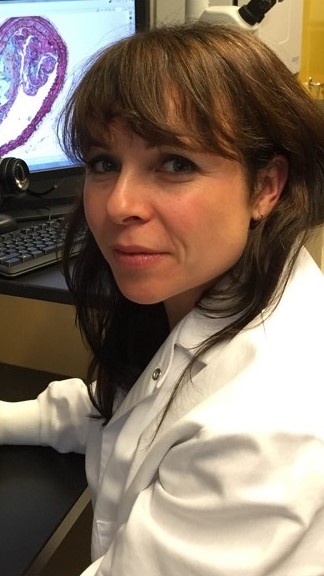Welcome to the Kanter Laboratory
What are the molecular mechanisms that result in complications of diabetes?
Research:
Diabetes is increasing as a result of increased rates of obesity, and with that complications of diabetes are also on the rise. These include diabetic kidney disease and macrovascular complications such as cardiovascular disease due to underlying atherosclerosis. In the laboratory, we are focused on these two main complications of diabetes and how they potentially interact. We are especially interested in myeloid cells (monocytes and macrophages), how they get activated under diabetic conditions, and their role in accelerating diabetes-associated complications, such as kidney disease. The laboratory has recently generated a model to study the combination of diabetic kidney disease and atherosclerosis. This will allow us to ask what molecular mechanisms drive the individual complications and the interaction between them. One of these mechanisms appears to be augmented inflammatory signals, perhaps driven by diabetic dyslipidemia.

Jenny Kanter, PhD
I earned my Ph.D. in 2010 from the University of Washington. My Ph.D. work was focused on myeloid cell inflammation in diabetes and how this inflammation affected atherogenesis (PNAS. 2012;109(12): E715-24. PMID:22308341). Following my Ph.D., I did a 2-year postdoc with Novo Nordisk A/S as part of their STAR program. The project involved an insulin receptor agonist with blood glucose lowering effects with distinct signaling properties compared to insulin. This peptide dramatically reduced atherosclerosis in a model of type 2 diabetes (Diabetes. 2018; 67(5):946-959. PMID: 29483182). Following my postdoc with Novo Nordisk, I transitioned into a faculty position as a Research Assistant professor at the University of Washington in the division of Metabolism, Endocrinology, and Nutrition in 2014. My independent work has continued to focus on complications of diabetes, such as renal and cardiovascular complications (Am J Pathol. 2018:188(2):343-352. PMID:29154962). We are currently funded to investigate the role of triglyceride-rich lipoproteins in diabetic kidney disease, which is important for cardiovascular complications in diabetes (J Clin Invest. 2019;129(10):4165-4179. PMID: 31295146).
What do you like to do to relax: When I’m not in the laboratory, I enjoy running and spending time with my family.

Farah Kramer, BS
Farah is a research scientist who works in both the Kanter and the Bornfeldt laboratory. Her interests include developing and maintaining mouse models of diabetes-accelerated atherosclerosis and kidney disease (Bornfeldt et al. Am J Pathol. 2018).
What do you like to do to relax: camping and traveling with family

Jocelyn Cervantes
Graduate Student
My ongoing predoctoral research examines if diabetic dyslipidemia, characterized by elevated triglyceride-rich lipoproteins, drives increased accumulation of lipid-loaded monocytes in the kidney and whether these foam cells play a pathogenic role in diabetic kidney disease.
What do you like to do to relax: Drink a warm cup of coffee while sitting in the sun, photography, and taking care of my plants

Aaron Xu
Graduate Student
Besides helping in the laboratory, I have spent some time looking at how lipids affect pancreatic beta cells through cell culture, gel electrophoresis, and staining. I spent the summer learning about the formation of lipid droplets and how ER stress from lipoproteins could potentially disrupt their formation and lead to cell death.
What do you like to do to relax: I like to draw, play some piano ranging from pleasant to confused key banging, and play some video games while attempting to take breaks to get some exercise.
Contact Us
UW Medicine Diabetes Institute
750 Republican Street, Box 358062
Seattle, WA 98109
Jenny Kanter: (206) 616-6095
Fax: (206) 543-3567
Email: jenka@uw.edu
Twitter: @KanterJenny
To inquire about Postdoctoral and Graduate Student Openings click on: jenka@uw.edu
